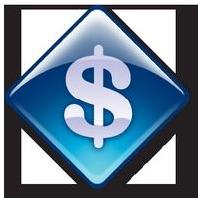
 |
|
| Financial Terms | |
| Controller |
|
Information about financial, finance, business, accounting, payroll, inventory, investment, money, inventory control, stock trading, financial advisor, tax advisor, credit.
Main Page: stock trading, financial advisor, financial, inventory, inventory control, investment, tax advisor, money, |
Definition of Controller
ControllerThe corporate manager responsible for the firm's accounting activities. controllerthe chief accountant (in a corporation) who is responsible controllerOfficer responsible for budgeting, accounting, and auditing.
Related Terms:chief financial officer (CFO)Officer who oversees the treasurer and controller and sets overall financial strategy. Accelerated cost recovery system (ACRS)Schedule of depreciation rates allowed for tax purposes. Accounting exposureThe change in the value of a firm's foreign currency denominated accounts due to a Accounting earningsEarnings of a firm as reported on its income statement. Accounting insolvencyTotal liabilities exceed total assets. A firm with a negative net worth is insolvent on  Accounting liquidityThe ease and quickness with which assets can be converted to cash. Accounts payableMoney owed to suppliers. Accounts receivableMoney owed by customers. Accounts receivable turnoverThe ratio of net credit sales to average accounts receivable, a measure of how Acquisition of assetsA merger or consolidation in which an acquirer purchases the selling firm's assets. ActualsThe physical commodity underlying a futures contract. Cash commodity, physical. Affirmative covenantA bond covenant that specifies certain actions the firm must take. Agency cost viewThe argument that specifies that the various agency costs create a complex environment in Agency costsThe incremental costs of having an agent make decisions for a principal.  All-in costTotal costs, explicit and implicit. Articles of incorporationLegal document establishing a corporation and its structure and purpose. AssetsA firm's productive resources. Assets requirementsA common element of a financial plan that describes projected capital spending and the Average accounting returnThe average project earnings after taxes and depreciation divided by the average Average age of accounts receivableThe weighted-average age of all of the firm's outstanding invoices. Average cost of capitalA firm's required payout to the bondholders and to the stockholders expressed as a Bankruptcy cost viewThe argument that expected indirect and direct bankruptcy costs offset the other Capital budgetingThe process of choosing the firm's long-term capital assets. Carring costscosts that increase with increases in the level of investment in current assets. Changes in Financial PositionSources of funds internally provided from operations that alter a company's Confirmationhe written statement that follows any "trade" in the securities markets. Confirmation is issued Controlled foreign corporation (CFC)A foreign corporation whose voting stock is more than 50% owned Corporate acquisitionThe acquisition of one firm by anther firm. Corporate bondsDebt obligations issued by corporations. Corporate charterA legal document creating a corporation. Corporate financeOne of the three areas of the discipline of finance. It deals with the operation of the firm Corporate financial managementThe application of financial principals within a corporation to create and Corporate financial planningfinancial planning conducted by a firm that encompasses preparation of both Corporate processing floatThe time that elapses between receipt of payment from a customer and the Corporate tax viewThe argument that double (corporate and individual) taxation of equity returns makes Corporate taxable equivalentRate of return required on a par bond to produce the same after-tax yield to CorporationA legal "person" that is separate and distinct from its owners. A corporation is allowed to own Cost company arrangementArrangement whereby the shareholders of a project receive output free of Cost of capitalThe required return for a capital budgeting project. Cost of carryRelated: Net financing cost Cost of fundsInterest rate associated with borrowing money. Cost of lease financingA lease's internal rate of return. Cost of limited partner capitalThe discount rate that equates the after-tax inflows with outflows for capital Cost-benefit ratioThe net present value of an investment divided by the investment's initial cost. Also called Country financial riskThe ability of the national economy to generate enough foreign exchange to meet Current assetsValue of cash, accounts receivable, inventories, marketable securities and other assets that Domestic International Sales Corporation (DISC)A U.S. corporation that receives a tax incentive for Dupont system of financial controlHighlights the fact that return on assets (ROA) can be expressed in terms Edge corporationsSpecialized banking institutions, authorized and chartered by the Federal Reserve Board Equivalent annual costThe equivalent cost per year of owning an asset over its entire life. Exchange of assetsAcquisition of another company by purchase of its assets in exchange for cash or stock. Execution costsThe difference between the execution price of a security and the price that would have Federal Deposit Insurance Corporation (FDIC)A federal institution that insures bank deposits. Financial analystsAlso called securities analysts and investment analysts, professionals who analyze Financial assetsClaims on real assets. Financial controlThe management of a firm's costs and expenses in order to control them in relation to Financial distressEvents preceding and including bankruptcy, such as violation of loan contracts. Financial distress costsLegal and administrative costs of liquidation or reorganization. Also includes Financial engineeringCombining or dividing existing instruments to create new financial products. Financial futureA contract entered into now that provides for the delivery of a specified asset in exchange Financial intermediariesInstitutions that provide the market function of matching borrowers and lenders or Financial leaseLong-term, non-cancelable lease. Financial leverageUse of debt to increase the expected return on equity. financial leverage is measured by Financial leverage clienteleA group of investors who have a preference for investing in firms that adhere to Financial leverage ratiosRelated: capitalization ratios. Financial marketAn organized institutional structure or mechanism for creating and exchanging financial assets. Financial objectivesObjectives of a financial nature that the firm will strive to accomplish during the period Financial planA financial blueprint for the financial future of a firm. Financial planningThe process of evaluating the investing and financing options available to a firm. It Financial pressThat portion of the media devoted to reporting financial news. Financial ratioThe result of dividing one financial statement item by another. Ratios help analysts interpret Financial riskThe risk that the cash flow of an issuer will not be adequate to meet its financial obligations. FirmRefers to an order to buy or sell that can be executed without confirmation for some fixed period. Also, Firm commitment underwritingAn undewriting in which an investment banking firm commits to buy the Firm's net value of debtTotal firm value minus total firm debt. Firm-specific riskSee:diversifiable risk or unsystematic risk. Fixed costA cost that is fixed in total for a given period of time and for given production levels. Foreign Sales Corporation (FSC)A special type of corporation created by the Tax Reform Act of 1984 that Freddie Mac (Federal Home Loan Mortgage Corporation)A Congressionally chartered corporation that Friction costscosts, both implied and direct, associated with a transaction. Such costs include time, effort, Generally Accepted Accounting Principals (GAAP)A technical accounting term that encompasses the Group rotation managerA top-down manager who infers the phases of the business cycle and allocates Growth managerA money manager who seeks to buy stocks that are typically selling at relatively high P/E HandleThe whole-dollar price of a bid or offer is referred to as the handle (ie. if a security is quoted at Incremental costs and benefitscosts and benefits that would occur if a particular course of action were Information costsTransaction costs that include the assessment of the investment merits of a financial asset. Intrinsic value of a firmThe present value of a firm's expected future net cash flows discounted by the Investment managerAlso called a portfolio manager and money manager, the individual who manages a IRA/Keogh accountsSpecial accounts where you can save and invest, and the taxes are deferred until money Lead managerThe commercial or investment bank with the primary responsibility for organizing syndicated London International Financial Futures Exchange (LIFFE)A London exchange where Eurodollar futures Long-term assetsValue of property, equipment and other capital assets minus the depreciation. This is an Long-term financial planfinancial plan covering two or more years of future operations. London International Financial Futures Exchange (LIFFE)London exchange where Eurodollar futures as well as futures-style options are traded. Managerial decisionsDecisions concerning the operation of the firm, such as the choice of firm size, firm Market impact costsAlso called price impact costs, the result of a bid/ask spread and a dealer's price concession. Market timing costscosts that arise from price movement of the stock during the time of the transaction Money managerRelated: Investment manager. Mortgage-Backed Securities Clearing CorporationA wholly owned subsidiary of the Midwest Stock Multinational corporationA firm that operates in more than one country. Neglected firm effectThe tendency of firms that are neglected by security analysts to outperform firms that Related to : financial, finance, business, accounting, payroll, inventory, investment, money, inventory control, stock trading, financial advisor, tax advisor, credit. |